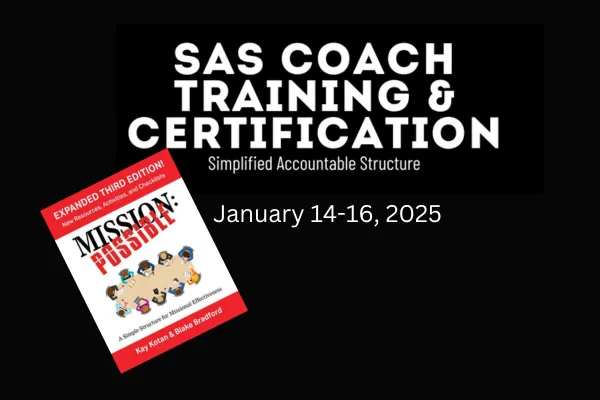
Tired of Unsatisfactory Volunteer Engagement? Try One of These Simple Tips
Let’s set the scene: The Nominations Committee is gathered around the meeting room table brainstorming about whose arm they could twist and convince to serve on this or that committee. Once the committee finally settles on the victim’s name, they begin to strategize on which committee member will call the person based on who will most likely convince the victim to cave and say yes. The yes likely comes on the heels of promises that the committee’s responsibilities will be minimal and won’t meet often.
Does this sound at all familiar? No, I haven’t been a fly on the wall at your Nominations Committee meeting! But, it is a common struggle for many churches I work with across the country.
As the context across the country has been reshaped post-COVID, so have the reasons and ways people desire to invest their time been reshaped. To increase servant leader engagement resulting in more fruitful and effective outcomes, here are five simple tips for your consideration:
IMPACT – If a person is going to invest their time, s/he wants to be sure the time will result in making a difference. Meetings that don’t move the ball forward or ministries that have no impact on people or communities will likely not be of interest. This is especially to those of the Gen Z and Millennial generations. Match people in areas of passions and giftedness.
EXPECTATIONS – Sam Walton stated, “High expectations are the key to everything.” If the church becomes desperate and simply fills volunteer slots by setting low expectations, that’s exactly the type of ministry outcome to be expected, too. Setting high expectations followed by properly equipping leaders and practicing accountable leadership will result in fruitful ministries.
FUNERALS – The church often tries to do too much. A church often tries to be all things for all people.Yet, there are many churches to help with the harvest! Churches start ministries yet have difficulty stopping them. Every ministry has an expiration date. If the ministry is no longer effective or impactful, celebrate its life and give it a funeral! Don’t continue to try to recruit people to serve a ministry on hospice! If no one is passionate about a ministry, don’t force it. Maybe it is time to put the ministry on the back burner until someone comes forward who is passionate about it again.
LIFE SENTENCES – People often serve lifetime sentences on committees. (Okay, maybe it starts as a three-year term, but ends up being a lifetime sentence.) Many committees we elect people to serve on for three years are not even required in the Book of Discipline. Eliminate unnecessary long-term committees and shift to short-term ministry teams. For example, a person might be willing to serve on a three-month VBS ministry team, but not a three-year children’s ministry committee.
EXPERTS – Somewhere along the way, churches began the practice of electing people with secular expertise to serve on the administrative committees (trustees, finance, staff-parish relations). Churches lost sight of the most important criteria for these leadership positions- being a mature disciple of Jesus first and foremost. The council or leadership board can always bring in the experts as needed, but having mature disciples who are committed to the mission and vision of the church, living out their membership vows daily, and understand the responsibility and honor s/he has while sitting in one of those leadership chairs is who should be leading the church.
If your church is struggling with volunteer engagement, try one or more of the tips above. Remember, it is called the Committee on Nominations AND Leadership Development. Do you have a leadership development pathway? How is your church raising up leaders in your church who are also leading in your community?
If your church could benefit from some resources on this subject, consider these:
On-Demand Webinar – Equipping for members of the Committee on Nominations and Leadership Development
Launching Leaders: Taking Leadership to New Heights – A book created for Nominating Committees outlining spiritual and leadership characteristics, a leadership development pathway, and a six-lesson leadership development curriculum
Mission Possible: A Simple Structure for Missional Effectiveness – A book created to help leadership teams simplify structure while regaining missional focus
Mission Possible for the Small Church: Simplifying Structure, Leadership, & Ministries for the Small Church – A book created especially for small churches with eight easy ways to simplify ministries, practical leadership strategies for small churches, and how to adapt the simplified, accountable structure for the small church



